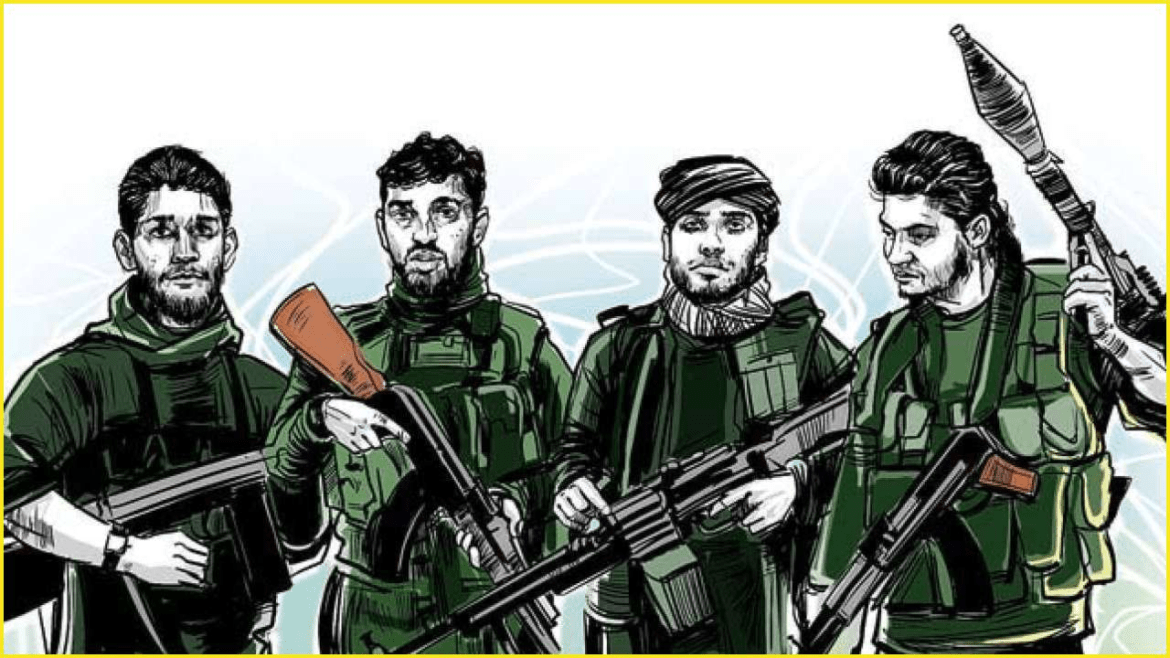AI Generated Summary
- While security forces are putting pressure on the terrorist activities, it is clear that despite its own crumbling economy, Pakistan continues to foster instability in the region.
- Despite a flagging economy, Pakistan continues to support and instigate acts of terrorism, escalating tensions with its neighbours, particularly in the region of Jammu and Kashmir, and Punjab.
- The changing strategy seems to be an attempt by Pakistan to avoid the scrutiny of the Financial Action Task Force (FATF), which removed Pakistan from its “grey list” last October.
Despite a flagging economy, Pakistan continues to support and instigate acts of terrorism, escalating tensions with its neighbours, particularly in the region of Jammu and Kashmir, and Punjab.
Officials familiar with the evolving situation report that Pakistan’s strategy has shifted. Instead of targeting Kashmiri civilians and minorities as previously seen, Pakistan is now believed to be training and arming highly-skilled terrorists to carry out guerilla attacks on security forces, particularly targeting security convoys, camps, and patrols.
A focal point of this new strategy appears to be the districts of Jammu, Rajouri, Poonch, and Reasi. Officials suggest, under the veil of anonymity, that Islamabad is intent on reigniting militant activities in these regions. Meanwhile, the Indian security forces are already adapting their response to this recalibrated threat.
Evidence for this strategic shift was seen in the recent ambushes on security personnel in Rajouri and Poonch. The level of planning and sophistication in the attacks, including the use of guerrilla warfare tactics, indicates the handiwork of highly trained operatives. Authorities estimate there could be 30 to 40 such trained terrorists operating in Poonch and Rajouri.
The changing strategy seems to be an attempt by Pakistan to avoid the scrutiny of the Financial Action Task Force (FATF), which removed Pakistan from its “grey list” last October. By focusing on military targets instead of civilians, Pakistan may be hoping to remain under the radar, whilst also preventing local backlash due to civilian casualties.
The change in tactics, however, does not indicate any decrease in Pakistan’s commitment to destabilising its neighbours. Instead, it is an evolution in its approach, with signs of more direct involvement of Pakistan’s army in these operations.
Evidence suggests that the command structure of terrorist operations is also shifting towards Jammu. In addition, there are reports that Pakistan continues to use various methods to fund these activities, despite a crackdown on traditional funding channels.
Indian security and intelligence agencies are closely monitoring this shift. Regular meetings are held to strategise, assess, and counter this evolving threat. Furthermore, the Central Reserve Police Force and Jammu and Kashmir police have already provided weapons training to nearly 1000 village defence guards, thereby bolstering their self-defence capabilities.
While security forces are putting pressure on the terrorist activities, it is clear that despite its own crumbling economy, Pakistan continues to foster instability in the region. The relentless sponsorship of terrorism underscores Pakistan’s persistent priorities, putting geopolitical unrest ahead of its own economic recovery.




